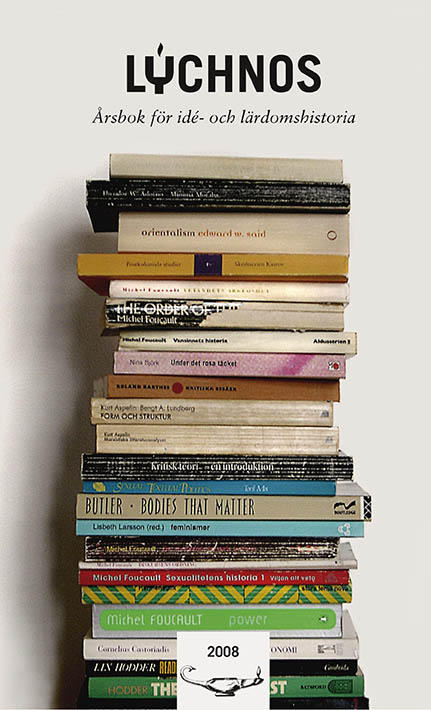Edward Saids motstånd
Postkoloniala perspektiv på reception
Abstract
This article gives no clear answer to what post- colonialism is, or to how it has been received in Sweden. Instead, it is argued that every generalising label made to signify a variety of situated attempts of explanation and understanding hides more than it shows.
Often all academic work building on the texts of the postcolonial trium- virate – Edward W. Said, Gayatri Chakravorty Spivak and Homi K. Bhabha – is counted as postcolonial. But the early Swedish interest in Edward Said’s work discussed in the article can hardly be seen as synonymous with an interest in postcolonialism.
Does postcolonialism denote a collection of themes, or is it rather a theoretical tradition formed by a specific line of thinkers? Can a border be drawn between postcolonial theory and other related perspectives?
The article presents two different narratives about postcolonial theory. One describes it as a series of situated attempts to create a subject position in different excluded orders. Another narrative sees postcolonialism and history of ideas as two outgrowths of the same brand of comparative literature originating in early twentieth-century Central Europe.
The main part of the article is a presentation of the arguments of Edward Said’s article ”Traveling theory” on how migrations of theories make them bland and domesticated. A humanistic critic should not strive to import theories; she should rather resist simplified theories and open them up to the multilayered reality of any concrete situation.
To import a travelling theory about oppression and resistance to the privileged places of Swedish academia considerably changes its content. Establishing labels and genealogies for theoretical traditions runs the risk of hiding this change of content. That is why this article is not about the reception of postcolonial theory in Sweden.
Downloads
Publicerad
Nummer
Sektion
Licens
This work is licensed under a Creative Commons Attribution 4.0 International License. The copyright for the work published in Lychnos remains with the authors.


